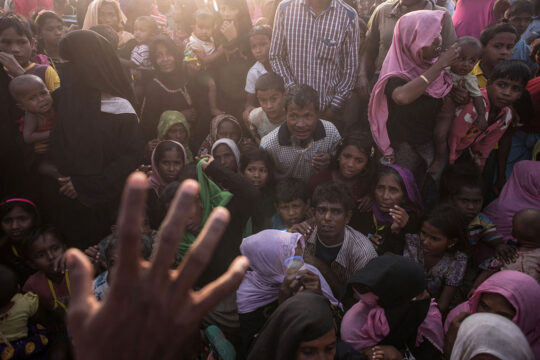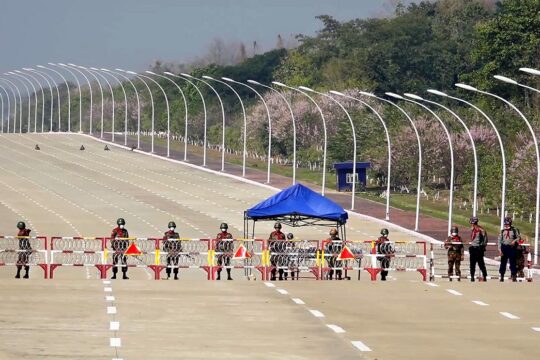Myanmar authorities have sentenced a Rohingya man to death for leading raids on police border posts that sparked a deadly military crackdown in the north of Rakhine state, police said on Monday.
Hundreds from the Muslim minority are thought to have died and tens of thousands have fled to Bangladesh since the army launched "clearance operations" four months ago to find the attackers.
Sittwe police chief Yan Naing Lett said the court in the town, the capital of Rakhine, had sentenced the leader of the raid on the Kotankauk border post to death on Friday.
"He was sentenced to death on 10 February at Sittwe court for intentional murder," Yan Naing Lett told AFP, without giving a date for the execution.
"He participated in the attacks and led them, and planned them with others. He is one of 14 attackers who were detained in Sittwe township," the officer said, naming the man as Mamahdnu Aka Aula.
The other 13 people also appeared in court but have yet to be sentenced, he added.
Than Tun, the leader of an aid organisation operating in northern Rakhine, confirmed the sentence, adding: "He is the first one to face such action since the attack."
Myanmar's government said hundreds of Rohingya militants carried out raids on three posts on the Bangladesh border on October 9, killing nine police in a series of coordinated attacks.
The International Crisis Group think-tank has said the attackers were a Saudi-backed group called Harakah al-Yaqin, which it said had spent years recruiting and training fighters in Bangladesh and northern Rakhine.
The sentencing comes days after a blistering report from the UN accused Myanmar's troops and police of carrying out a campaign of rape, torture and mass killings of Rohingya.
Based on interviews with hundreds of escapees in Bangladesh, investigators said the military's "calculated policy of terror" very likely amounted to ethnic cleansing.
Several hundred Rohingya have also been detained, the UN report said, describing how they were stripped, beaten, tortured and deprived of food and water.
Myanmar's government has pledged to investigate the allegations after spending months dismissing similar reports from international media and rights groups as "fake news".
The 1.1 million Rohingya are loathed by many from the Buddhist majority, who insist they are illegal immigrants from Bangladesh even though many have lived in the country for generations.
The recent violence has sparked criticism that Myanmar's de facto leader Aung San Suu Kyi has done little to help them since taking office almost a year ago.


